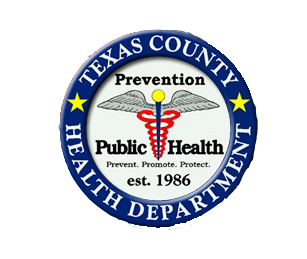Environmental
List of Services
-
Food InspectionsRead More List Item 1
The on-line reports will list the inspection date and the number of critical & non-critical violations. If you are interested in the actual inspection report, please set up time to view facility records or make copies. All inspections are a matter of public record.
-
Sewage DisposalRead More List Item 2
Sewage Dispsal Frequently Asked Questions
-
Daycare InspectioonsRead More List Item 3
The Primary purpose of the annual sanitation inspection is to ensure compliance with sanitation requirements thereby creating a safe, sanitary environment. It is a preventive service aimed at reducing the environmental health risks for children in care. A child care regulated facility can be a house or other place that advertises or holds themselves out as providing care for more than 4 children during the daytime, for compensation or otherwise, except those operated by a school system or in conjunction with a business establishment as a convenience for its customers
-
Lodging InspectionsRead More List Item 4
Conducted to assure that "Lodging Establishments" are in compliance with code, and, or standards related to fire safety, sanitation, electrical wiring, fuel-burning appliances, plumbing, swimming pools/spas, sewage, & water. A lodging establishment is any building, group of buildings, structure, facility, place, or places of business where 5 or more guest rooms are provided, which is owned, maintained, or operated by any person and which is kept, used, maintained, advertised, or held out to the public for hire which can be construed to be a hotel, motel, motor hotel, apartment hotel, tourist court, resort, cabins, tourist home, bunkhouse, dormitory, or other similar place by whatever name called, and includes all such accommodations operated for hire as lodging establishments for either transient guests, permanent guests, or both.
Food Service Establishment Inspection
Food facilities are inspected according to the level of risk presented. The type products served & number of steps involved determine this. Facilities determined to be High Risk are inspected at least once a year. The schools are required to be inspected at least two times per year. Other facilities of Medium Risk are inspected at least every 15 months & Low Risk facilities every 18 months. If there are critical violations a re-inspection will be conducted within 10 working days unless the matter can be corrected during inspection. All facilities are inspected and/or field visit made if a complaint is received. Facilities can be placed on “Work Order” and/or closed for failing to comply with critical violations.
The on-line reports will list the inspection date and the number of critical & non-critical violations. If you are interested in the actual inspection report, please set up time to view facility records or make copies. All inspections are a matter of public record.
Critical violations deal with issues which could lead to a food-borne illness and involve areas of employee health, hygienic practices, cleaning of food contact surfaces, food temperatures, storage, source, insect/rodent controls, chemical storage/use. Non-critical violations as a general rule deal with non-food contact surfaces and issues that don’t lead to food-borne illness but are important to proper operation of facility. Non-critical violations should be corrected before next inspection date. If you have more than 12 non-critical violations the facility will be placed on “Work Order”. To see a summary of the health inspection results, click here.
Foods approved for sale at Farmer's Markets, Craft Fairs & Bake Sales
There are often questions as to what products can be sold without inspection. Effective August 28, 2005 state statutes were changed to exempt religious, charitable, and non-profit organizations that are selling non-potentially hazardous foods from all state laws and regulations relating to food inspection. To be exempt you must sell these non-potentially hazardous foods at their religious event or at charitable functions or activities.
Another statute change affects the producers of jams, jellies and honey where annual sales don’t exceed $30,000. These food products must be sold to the end consumer; there can’t be any middleman. There shall be a placard displayed in a prominent location stating the following: This product has not been inspected by the Department of Health. The jam, jelly or honey containers must bear the name and address, common name of the food, list of multiple ingredients and statement that it is not inspected product. County & local ordinances can be more stringent than state statutes.
The following foods can be sold at farmers markets, religious and charitable events.
- Breads, candy, brownies, fruit pies, cookies and cakes
- Whole uncut fruits and vegetables
- Frozen meat from inspected processor
- Jams, jellies and honey
- Fresh (not sealed) refrigerated salsa from inspected facility
- Eggs from a licensed source and refrigerated at 45 degrees
The following foods cannot be sold.
- Meat from sources not inspected.
- Pies containing eggs, milk or milk products including pumpkin, sweet potato or cream pies.
- Cut and peeled fruits and vegetables
- Salsa, relish and other canned foods
